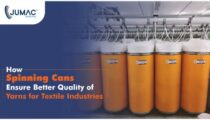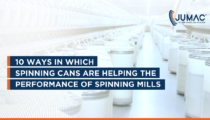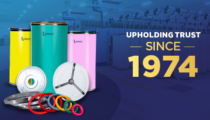In recent years, the textile industry has witnessed continuous growth…
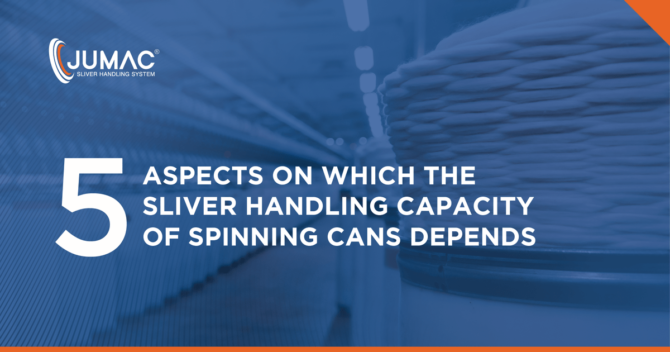
5 Aspects On Which The Sliver Handling Capacity of Spinning Cans Depends
In the overall yarn spinning process, the importance of sliver handling can hardly be overemphasised. As the demand for superior-quality fabric and yarn continues to increase, spinning mills are focusing on optimising their sliver handling techniques – so that the process becomes continuous & seamless, and there are no sliver imperfections whatsoever. Using HDPE spinning can and accessories of assured quality is also critical in this regard. To meet the custom requirements of mills, the top manufacturers are regularly coming up with high-quality spinning cans with optimised loading capacities, durability, and easy usability. Let us here put the spotlight on the key aspects on which the sliver handling capacity of sliver cans depends:
Nature & Type Of The Yarn
During yarn processing, due care has to be taken to ensure that the original sliver parameters are maintained (to the maximum extent possible). Mills typically work with different types of yarns (e.g., carded, synthetic, combed, etc.). The precise nature of the long-staple or short-staple yarn that is being processed is a crucial determinant of the required sliver handling capacity. It’s certainly not a ‘one-size-fits-all’ situation.
From comber cans and carding cans, to finisher draw frames and open-ended spinning tools – the leading spinning can manufacturers offer a wide range of custom sliver handling solutions, with robust capacities and full quality assurance. Increased hairiness and yarn neps are generally a direct result of using sliver cans that are not of the correct capacity and/or do not have the requisite features. HDPE spinning cans do optimise yarn production – but only when they are selected with care.
Need For Evenness & Proper Fibre Orientation
On average, there can be upto 40K fibres in each cross-section of the original sliver. This figure needs to be brought down to around 100 in the final form of the yarn. To ensure this, the fibres have to be evenly distributed. The sliver handling system in general, and the sliver capacity in particular, has to be chosen to make sure that the fibres are properly aligned. This, in turn, helps in the maintenance of the right proportion of fibre strength to yarn strength.
Spinning cans with proper sliver handling capacities help in the production of high-quality yarns that are completely even, and do not have any imperfections. The doffing cycle is significantly reduced and the overall workflow becomes a lot more seamless.Mills also have to make sure that the spinning cans they are using have the robustness and capacity to counter excessive mechanical stress & fatigue – so that there are no damages and resultant downtimes.
Dimensional Accuracy and Operational Efficiency
Randomly selected spinning can and accessories are generally not able to maintain the high dimensional accuracy levels required for the creation of quality-optimised yarns. For this purpose, mill-owners should ideally go with sliver cans made of high-density polyethylene (HDPE) that are welded and offer excellent protection against snagging risks (both during emptying and filling processes). The easy recyclability of HDPE cans is an added advantage – particularly with environmental awareness on the rise everywhere.
When spinning cans are not carefully chosen, there is a relatively high risk of sliver damages – particularly during the drafting stages over ring frames and speed frames. The top sliver can manufacturers, like Jumac Cans, help their clients eliminate such risks. Chances of high periodic variations/random variations in the sliver or yarn are also minimised. Depending on the exact material handling requirements, buyers can select rectangular cans (which have significantly higher capacities) or cylindrical cans.
The Need To Handle Probable Sliver Imperfections
The best spinning cans that have the required sliver handling capacity are instrumental in keeping the commonly-encountered imperfections and defects in sliver at an arm’s length. For instance, problems like excessive stretching can lead to unnatural sliver elongation and breakage – hampering yarn quality. High mechanical stress, particularly when the cans are rotating at high speeds, can also cause sliver deflections and can damages. All these issues can be safeguarded against, by the selection of customised sliver handling systems.
In addition to the importance of sliver handling capacity and fatigue-resistance of cans, the role of high-quality, sturdy accessories for optimal yarn production also needs to be understood. Can springs (box and pantograph), top and bottom rims/plates/covers, draw frames, and related tools help in minimising the risks of sliver damages & imperfections. Caster wheels ensure smooth and damage-free mobility of slivers – while accumulated fluff and dust also need to be systematically removed. For mills, it is always a good idea to source spinning can & accessories from a reputed manufacturer that has a complete range of products in its portfolio.
Maintenance Of The Physical Attributes Of Spinning Can
When HDPE spinning cans of the right sliver handling capacity and overall durability are used, mills can rest assured about the spinning process not causing any significant damage to the cans. In particular, the overall roundness and structure of the sliver cans are maintained. As a result, there are practically no chances of yarn breakage and/or excess hairiness in the output.
For yarn quality optimisation, ensuring smooth sliver collection on a sturdy, stable base is also important. This is yet another aspect that users need to pay attention to, while determining the sliver handling capacity they require. Superior mechanical handling also ensures excellent impact-resistance, and gives adequate protection to sliver at all times. To deliver the best value to buyers, the leading spinning can manufacturers offer sliver cans of different capacities, sizes and other attributes at competitive rates.
Sliver handling is a task that has to be handled sensitively and with a lot of care, to eliminate possibilities of damages and imperfections. While the technically advanced spinning machinery at mills have helped in productivity enhancements, users also have to ensure that the spinning can & accessories they select are fully compatible with their existing setup. The focus on continuous improvement by sliver can manufacturers is constantly pushing the envelope as far as sliver handling excellence is concerned – and things are expected to become more efficient in the future.
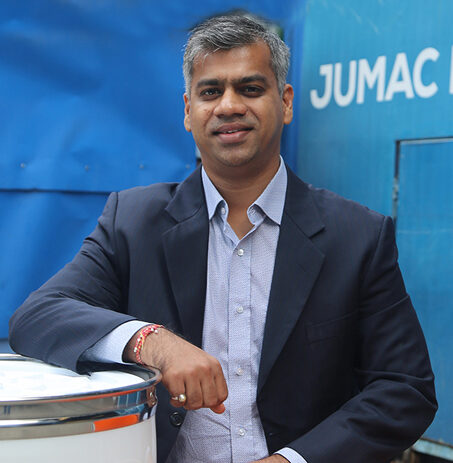
Passionate about transforming the industrial sector of textile and spinning industry with innovative solutions. Director at Jumac Manufacturing, leading spinning cans and accessories manufacturer and exporter from Kolkata, India.





